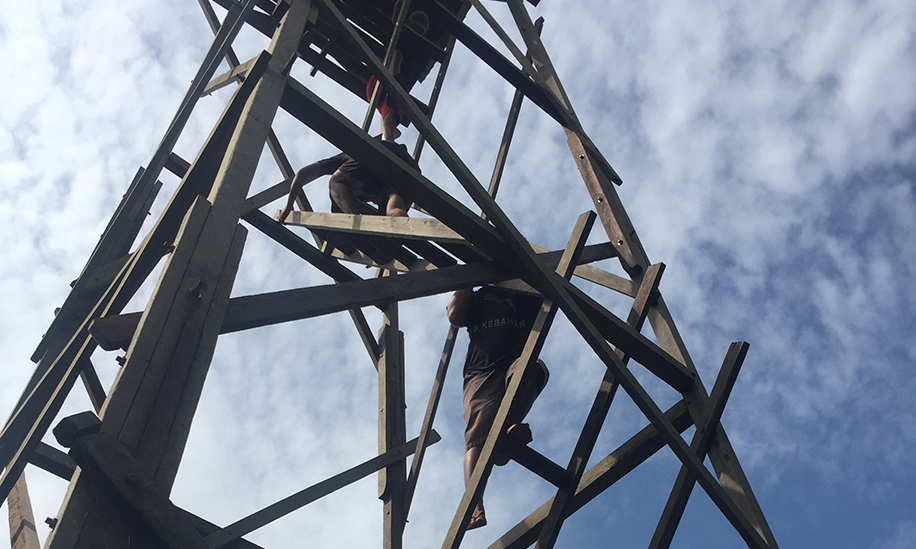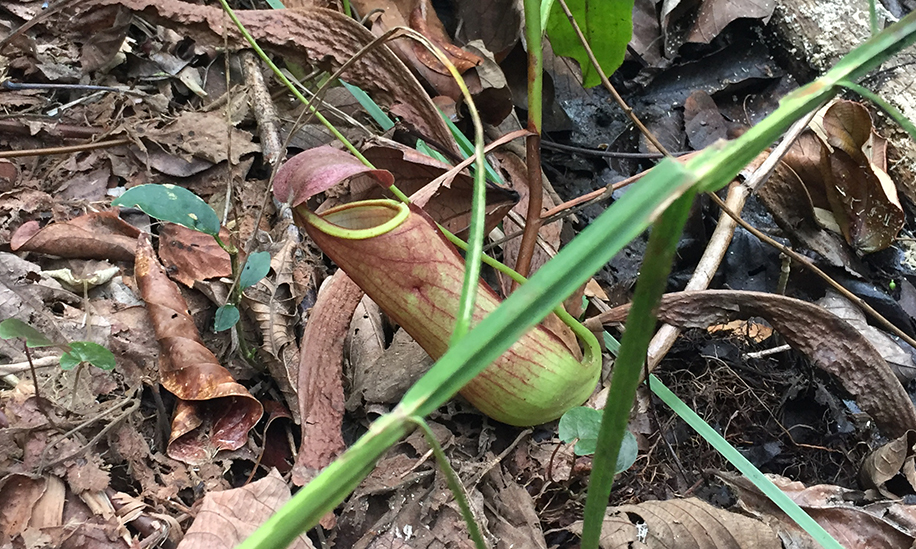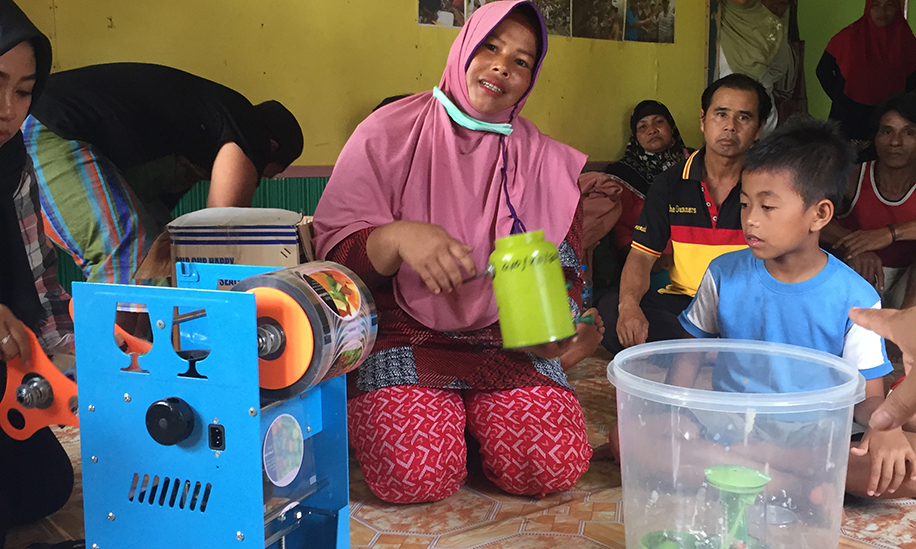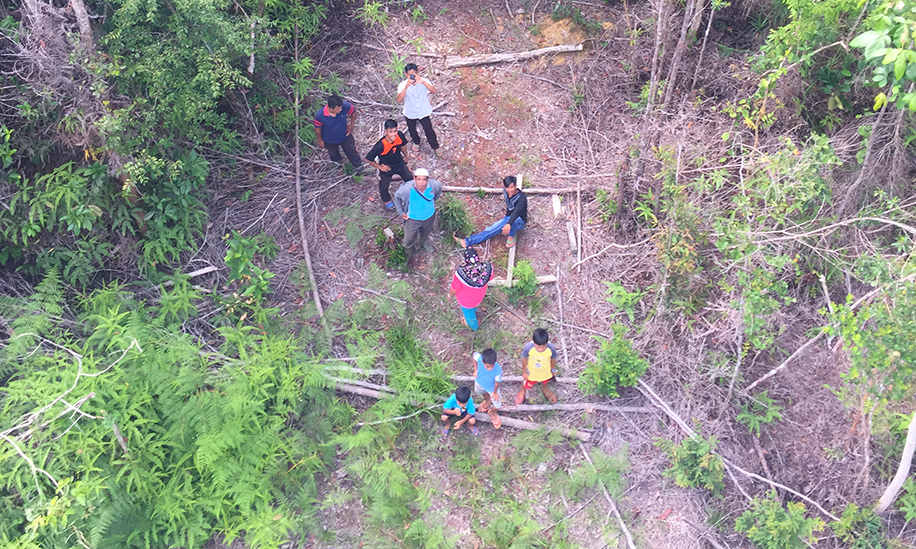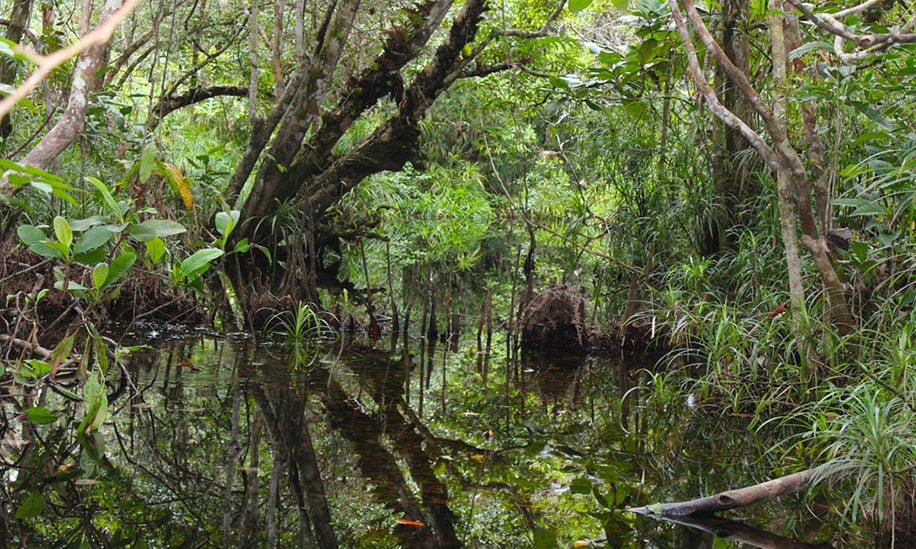The forests of Borneo, the world’s third biggest island, are incredibly rich in biodiversity—and are under serious threat from logging and oil palm plantations. Deforestation has escalated in the last three decades, causing drastic reductions in wildlife habitat. Damage to the forest watersheds has also severely degraded river and marine ecosystems.
The Rasau Sebaju Forest, in West Kalimantan Province, is a swampy tropical peat forest. It is home to threatened pangolins and the magnificent rhinoceros hornbill, among thousands of other kinds of plants and animals.
Community members have resisted pressure to allow oil palm into their forest. They fear that if the trees were cut, their village and small rice fields would be flooded. The community will use a Seacology grant to build infrastructure to help them protect the forest: a watch tower, three watch posts, a bridge, and communication tools such as walkie-talkies. Community members will use the watch posts and tower to deter and spot illegal activity, such as timber cutting. In the dry season, they will also keep an eye out for fire. The bridge will let them cross a river that flows through the protected area. They have delineated areas around the village for tree-planting and protection.
Our nonprofit partner is INTAN (Institute for Research and Development of Forest Products Technology). It works with indigenous communities to increase the value of sustainable forest products.


